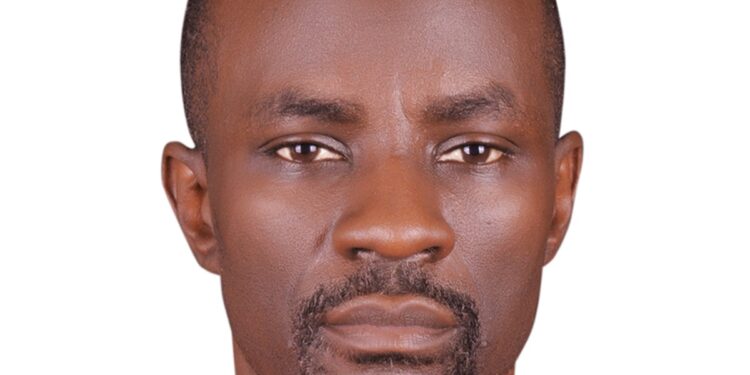Now in my second year as Resident District Commissioner (RDC), first in Rwampara and now Bushenyi, no skill have I found most handy than the skill of building teamwork. It so happens that my cohort has had a number of capacity building trainings, at NALI, Kyankwanzi, and other places, where we are usually invited to receive ideological and practical brush up on how to conduct our operations. The most recent such “brushup” was in Mbarara at Hotel Triangle where RDCs, RCCs and our Deputies, plus DISOs from Ankole and Kigezi Sub-Region, were taken through best practices in doing our work by a team from the Presidency led by the Minister, Hon. Babirye Milly Babalanda, and the Secretary, Hajji Yunus Kakande, various commissioners and other very knowledgeable resource persons.
Whatever other takeaways to be had in these discussions, the necessity for working together, first as RDCs and our Deputies, then with DISOs (who are also part of the Presidency) and then with political and technical wingers in our various areas of jurisdiction is most notable for me. The Minister for the Presidency is always emphatic on this idea. She usually states it, thus: “Why should an RDC, a CAO and LC 5 Chairman fight? We should learn to work together. We either succeed or fail together.”
In some places, the “trinity” of RDC, CAO and LC 5 Chairman (aka Governor) do not see eye to eye. And in extreme cases, they don’t just not see eye to eye but also want each other gone, or finished i.e fired or recalled. In some cases, even eliminated, physically, that is. Questioning ones work methods or disagreeing on some things is not new nor is it prohibited. It is, in fact, encouraged because as people working in and for the same Government, we should check one another. But there is a good and bad way to do it. Nobody says RDC, CAO and Chairman should hurdle together and collude to misgovern the district or drain its coffers. We should work together on principle as an example for the teams we lead. How shall we prevent workplace intrigue when we cannot disagree with maturity or agree on principle? What’s personal there unless the actors are emotional and they have underhand interests that antagonise the interests and good of the administrative unit.
At two years since President Yoweri Museveni clinched a new mandate, a lot has been done but a lot remains undone. Failure to achieve milestones in the Manifesto can be attributed to a number of factors, including the ever narrow resource envelope, corrupt tendencies, lack of involvement or all stakeholders, but poor coordination and lack of teamwork in the field very much sums up the problems disrupting our pace.
When we are not in concert as leaders, how can we appropriately man the optimum use of available resources and brainstorm on how to raise more (that is, how to drive the economy to surpass the level bedeviling our progress), how can we “isolate and crush” the corrupt, how can we mobilise and encourage other stakeholders (including the populace, and even the naysayers) to get involved in development? Above all, how can we protect our collective gains and the revolution (according to the Deputy Director General of ISO, Lt. Col. Emmy Katabazi, who was with us at Mbarara during the workshop, a revolution is a complete change that impacts on the tendencies, economy, beliefs, culture, management, etc, of society)? Above all, how can we embrace the all-important stage of the revolution, which is to transform the lives of the common person, at the most basic unit of the society (i.e the family)?
With the coming of Parish Development Model (PDM), our generation of leaders is charged with helping refocus and repurpose the revolution to make meaning even to the “least individual” who would otherwise be left to fate. They may have weaknesses that hold them back, or even be cursed, as the superstitious would diagnose, but it’s up to the leaders to apply methods that will overcome the traditional malaises that deny our people the dignity they deserve and which they would embrace if they were thoroughly mobilised. No human being is accursed to poverty, except for mindset!
And the question which President Museveni usually challenges us with is: “How can you be leaders of poor people and not feel uncomfortable?” This rings in my mind everytime I recall how our (new) generation is indebted to the senior leaders and the people of Uganda (the former category, for the struggles they went through for us to have the Uganda of today and the latter, to be their hope and bridge to a better country).
Therefore, as leaders, let us agree to work together and succeed together (there is no room for failure. Agreeing to work together is a step towards success. I appreciate the unity among the leaders of Bushenyi district and the fact that our “trinity” of myself as RDC, Chairmam Jafari Basajabalaba and CAO, Mr. Willy Bataringaya, sees “eye to eye”, for start, as we work towards ensuring effective service delivery and transformation. Constant consultation and cross-representation is helping us resolve many challenges, allowing collective responsibility to guide instead of undermining one another.
Our “trinity” is just an example but Bushenyi’s leaders and “heavyweights” are, as far as I am concerned, ready to place the interests of the people and the system above personal ego and emotions. How can we not succeed?
The author is the Resident District Commissioner (RDC), Bushenyi
Contact: 0778738888
Email: 777aronda777@gmail.com
Do you have a story in your community or an opinion to share with us: Email us at editorial@watchdoguganda.com













